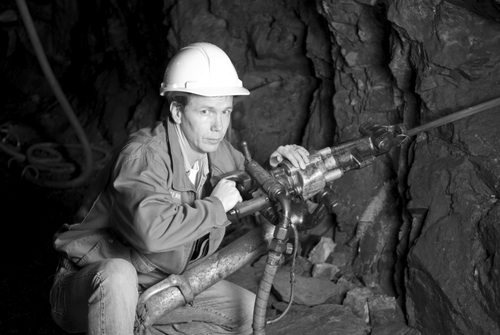It seems Massey Energy Co., the owner of the West Virginia mine where 25 people died in an explosion, made one bad decision after another in the time leading up to last week’s tragic event.
First, the company opted out of buying a little something called insurance — more specifically, business interruption insurance. Massey’s annual report acknowledged that its operations are subject to certain conditions and risks that may cause an interruption in operations, but that they “do not currently carry business interruption insurance.” The company must now deal with lost production (the mine is still closed) and the enormous workers compensation liability hanging over its head, not to mention the lawsuits Massey is sure to face. These glaring troubles have caused the company’s stock price to slip from its 52-week high of $54.80 on April 5th to this morning’s share price of $47.33, a 13.6% decrease.
Second are the decisions made by Don Blankenship, Massey’s CEO. His greed, hatred of regulators and unions, and mocking of environmentalists have been heavily broadcast throughout the media since the deadly April 5 event. The Kansas City Star ran a scathing editorial on the coal czar, highlighting the numerous fines levied on Blankenship’s various mines, his successful ousting of a West Virginia state Supreme Court Judge (which eventually saved Massey from a $50 million jury verdict) and his constant concern for profit over safety.
In the world of coal mines, Massey had a below average safety record, to put it nicely.
As the New York Times stated Tuesday:
J. Davitt McAteer, a former assistant director of the Mine Safety and Health Administration, said the Massey company “is certainly one of the worst in the industry” when it came to safety and called recent violations at the mine for substandard ventilation and other problems “cardinal sins.” “The Massey record is without doubt one of the most difficult in the industry from a safety standpoint,” Mr. McAteer, now the vice president of Wheeling Jesuit University, said in an interview. He said other large, diversified coal operators had far better safety records than Massey.
That same article reports that, in 2009, the mine registered an unfathomable 458 violations, many of them regarding safety requirements. But for Blankenship, safety came last, profit came first, as noted in the Massey CEO’s now-infamous memo to his deep mine superintendents.
It states:
If you have been asked by your group presidents, supervisors, engineers, to do anything else other than to run coal (i.e. – build overcasts, do construction jobs, or whatever) you need to ignore them and run coal. This memo is necessary only because we seem not to understand that the coal pays the bills.
The running of coal does pay the bills, but only when you operate a mine safe enough to keep workers alive. The “overcasts” that he refers to are necessary for proper mine ventilation.
The families and friends of the victims are rightfully pissed off at Mr. Blankenship. When he arrived at the mine to announce the death toll to those gathered there, shouting ensued — blaming the Massey CEO for caring more about profits than miners’ lives. Don Blankenship, in his efforts to increase profits at all costs, has instead almost halted his company’s revenue stream and severely scarred its reputation along with his own.
Was it worth it, Don?

Prioritizing profits over safety at Massey may have led to tragedy.


